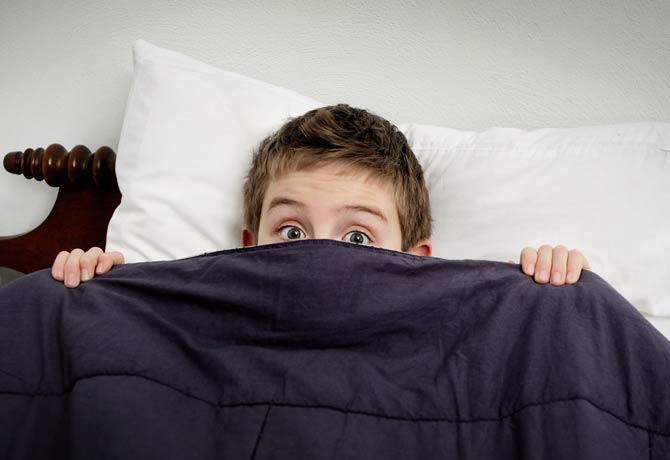Wetting the bed – a sign of something more serious?
What is enuresis (bedwetting)?
Though most children are toilet trained between two and four years of age, wetting the bed still occurs in about 40% of three-year-olds and 20% of five-year-olds. Even 1 percent of ten-year-olds wet the bed. Boys are much more likely to do it than girls. We also find that it runs in families.
There are two types of enuresis. There are children that only wet the bed at night. There are also kids that have accidents during the day and at night as well. Some children never have a dry night (primary enuresis) and still other kids who used to have dry nights, but begin having accidents again (secondary enuresis).
Certainly these children need to be assessed by their physician. In particular, patients that are urinating more frequently, passing large amounts of urine, experiencing burning sensations or pain when emptying, have smelly or cloudy urine or exhibit difficulty walking, should definitely be seen by their physician.
What causes enuresis?
Most enuresis is simply a result of delayed maturation of the brain’s control of the bladder. For these children, time and patience will lead to nighttime dryness. For other children, new stresses such as illness, bullying or other life changes can lead to bedwetting and accidents. Constipation is also a very common contributor to bedwetting.
Treatment options
There are several strategies for minimizing the problem of wetting the bed. I suggest avoiding drinking (especially caffeinated foods and beverages) two hours before bedtime. Encourage your child to go to the washroom before going to sleep. You may also consider taking your child to the bathroom before you retire for the night (i.e. a few hours after they have been in bed). Using waterproof covers on the mattress helps cleanups. There are also bedwetting alarms that can help, assuming the youngster is motivated. These alarms detect when the child begins to pee and will trigger a buzzer that alerts him or her to go to the washroom.
There are also a number of medications such as Desmopressin (DDAVP) that can help maintain dryness overnight. While I do not routinely prescribe this medicine, some children can benefit from its use for special events like camp and sleepovers.
If your child is suffering from bedwetting, rest assured that the vast majority of kids will acquire control over their bladders during the day and overnight within a few years.










